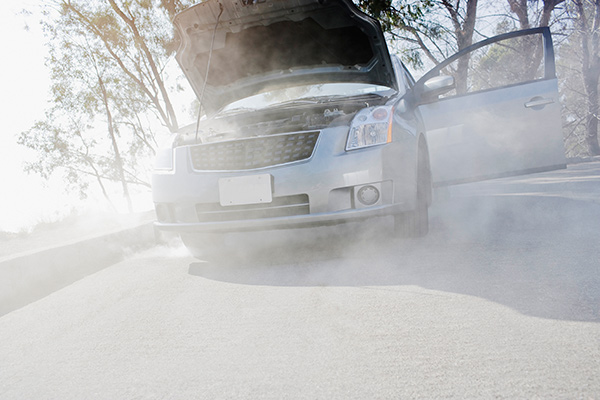Your car’s temperature gauge starts climbing into the red zone, or a warning light illuminates on the dashboard – these are signs that your car is overheating. While this situation can be stressful, knowing how to respond is crucial to prevent further damage to your vehicle’s engine. In this comprehensive guide, we’ll explore the things you should avoid when your car is overheating, ensuring you take the right steps to protect your vehicle and yourself.

1. Don't Ignore Warning Signs
The first and most crucial step is to pay attention to your car’s warning signs. If the temperature gauge is rising or a warning light comes on, it’s an indication that your engine is getting too hot. Ignoring these signs can lead to severe engine damage. Act promptly and pull over to a safe location.
2. Avoid Opening the Radiator Cap
When your engine is overheating, resist the urge to open the radiator cap immediately. The high pressure and temperature can cause hot coolant to spray out, leading to severe burns. Wait until the engine cools down before attempting to check or add coolant.
3. Don't Keep Driving:
Continuing to drive an overheating car is a common mistake that can result in catastrophic engine failure. Pull over to a safe location, turn off the engine, and allow it to cool down before assessing the situation.
4. Avoid Pouring Cold Water on a Hot Engine:
While it might be tempting to cool down the engine quickly with cold water, doing so can cause thermal shock and potentially crack the engine block. Instead, wait for the engine to cool naturally before adding coolant.
5. Don't Use Cold Water in the Radiator
When adding coolant, use a 50/50 mix of coolant and water. Using pure water may seem like a quick fix, but it can lead to corrosion and reduce the effectiveness of the cooling system.
6. Avoid Removing the Radiator Cap Quickly:
If you need to add coolant or check the radiator, do so with caution. Opening the radiator cap too quickly can release built-up pressure, causing hot coolant to spray out. Loosen the cap slowly to avoid any accidents.
7. Don’t Neglect the Cooling System:
Regular maintenance is key to preventing overheating issues. Check coolant levels, inspect hoses for leaks or cracks, and ensure the thermostat is functioning correctly. A well-maintained cooling system is less likely to encounter problems.
8. Avoid Using the Heater:
While it might seem counterintuitive, using the heater can add strain to the engine. The heater draws heat away from the engine, making the cooling system work harder. Turn off the heater to reduce the load on the cooling system.
9. Don’t Forget to Check for Leaks:
After your engine has cooled down, inspect the engine bay and under the car for signs of coolant leaks. Leaks can contribute to overheating problems, and addressing them promptly is crucial to preventing recurrence.
10. Avoid Delaying Professional Help:
If your car consistently experiences overheating issues, seek professional assistance promptly. Delaying repairs can lead to more extensive and expensive problems down the road. A qualified mechanic can perform a thorough inspection, identify the root cause, and provide the necessary repairs.
By being aware of these things to avoid when your car is overheating, you can take proactive measures to protect your vehicle and ensure a safer driving experience. Regular maintenance and prompt attention to warning signs are key to preventing overheating-related problems. If in doubt, consult with a professional mechanic for a thorough inspection and necessary repairs.
Remember, your safety and the well-being of your vehicle depend on how you handle an overheating situation. Taking the right steps promptly can not only prevent severe damage but also ensure that you’re back on the road with a properly functioning vehicle. Stay vigilant, stay informed, and prioritize the health of your car’s cooling system.
FAQ
Can I use water to cool down an overheating engine?
While water might seem like a quick and accessible solution, it’s not the best choice for several reasons. Pouring cold water on a hot engine can lead to thermal shock, potentially causing the engine block to crack. Additionally, using plain water instead of a proper coolant mix can result in corrosion and reduced effectiveness of the cooling system. It’s advisable to wait for the engine to cool naturally and then add a 50/50 mix of coolant and water.
How often should I check my car’s cooling system for maintenance?
Regular maintenance of your car’s cooling system is essential to prevent overheating issues. Check coolant levels and inspect hoses for leaks or cracks at least every six months or as recommended in your vehicle’s owner’s manual. Additionally, during routine oil changes, ask your mechanic to inspect the cooling system and ensure that the thermostat is functioning correctly. A well-maintained cooling system is less likely to encounter problems, contributing to the overall health and longevity of your vehicle.
